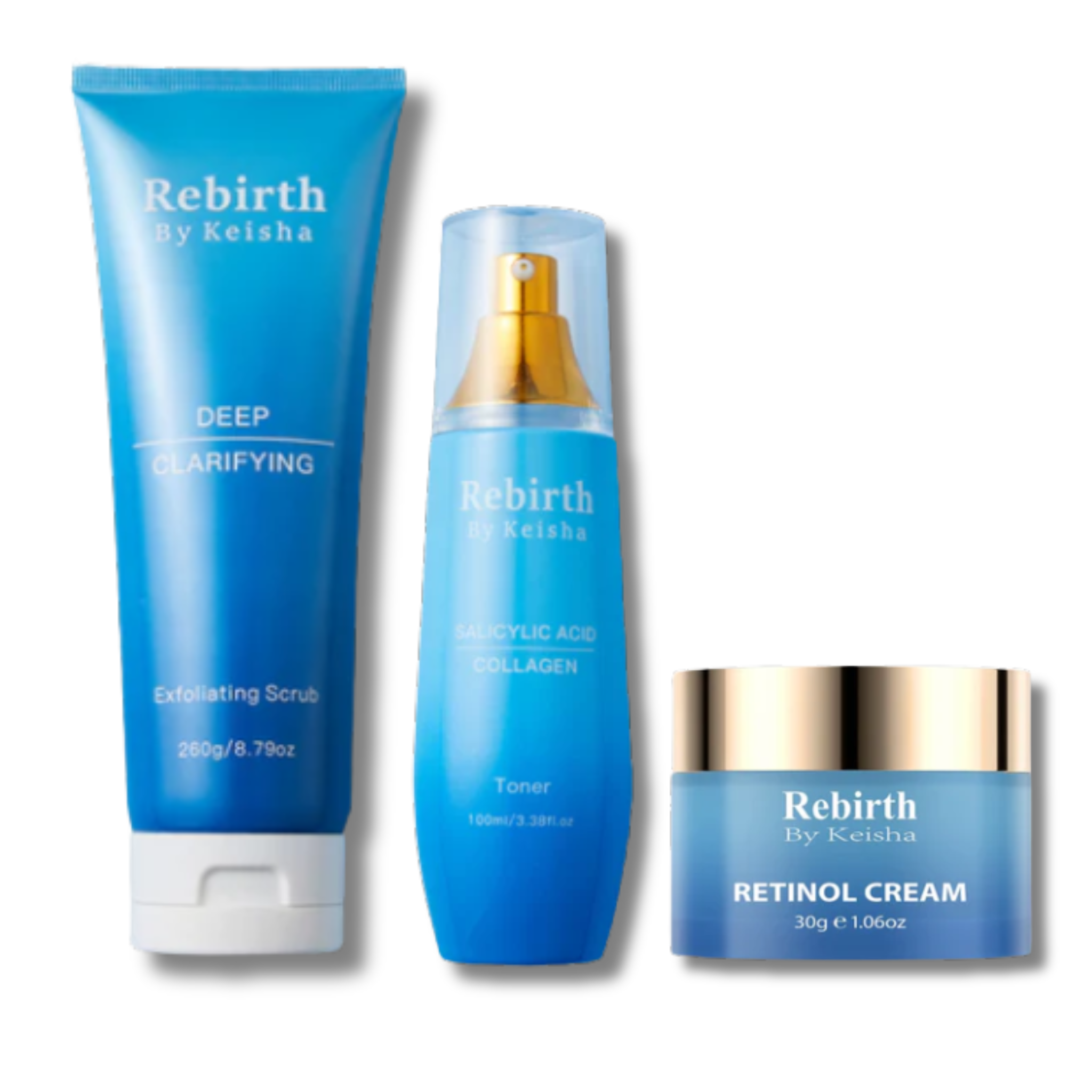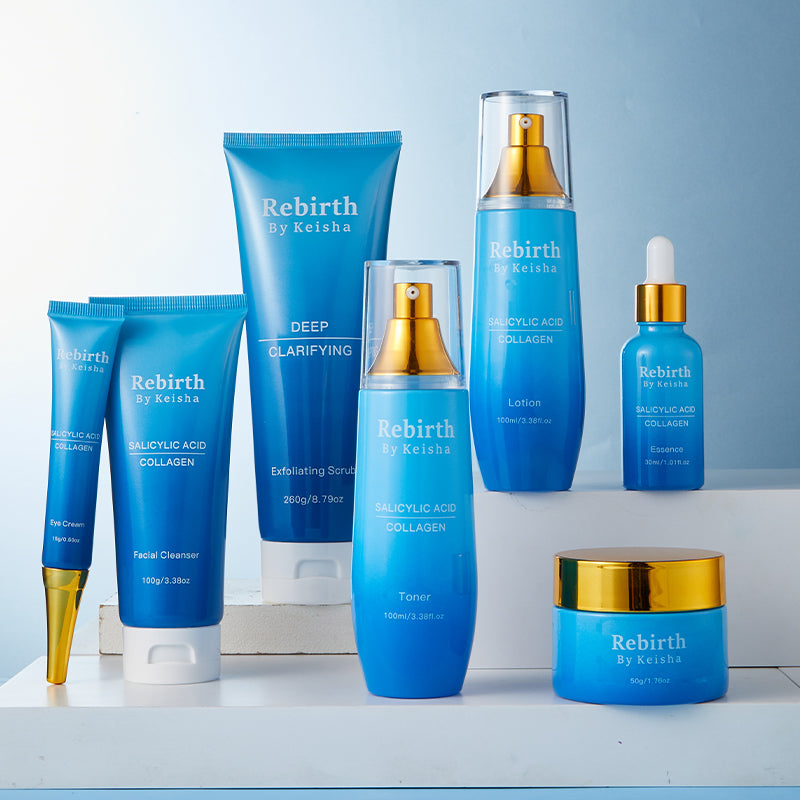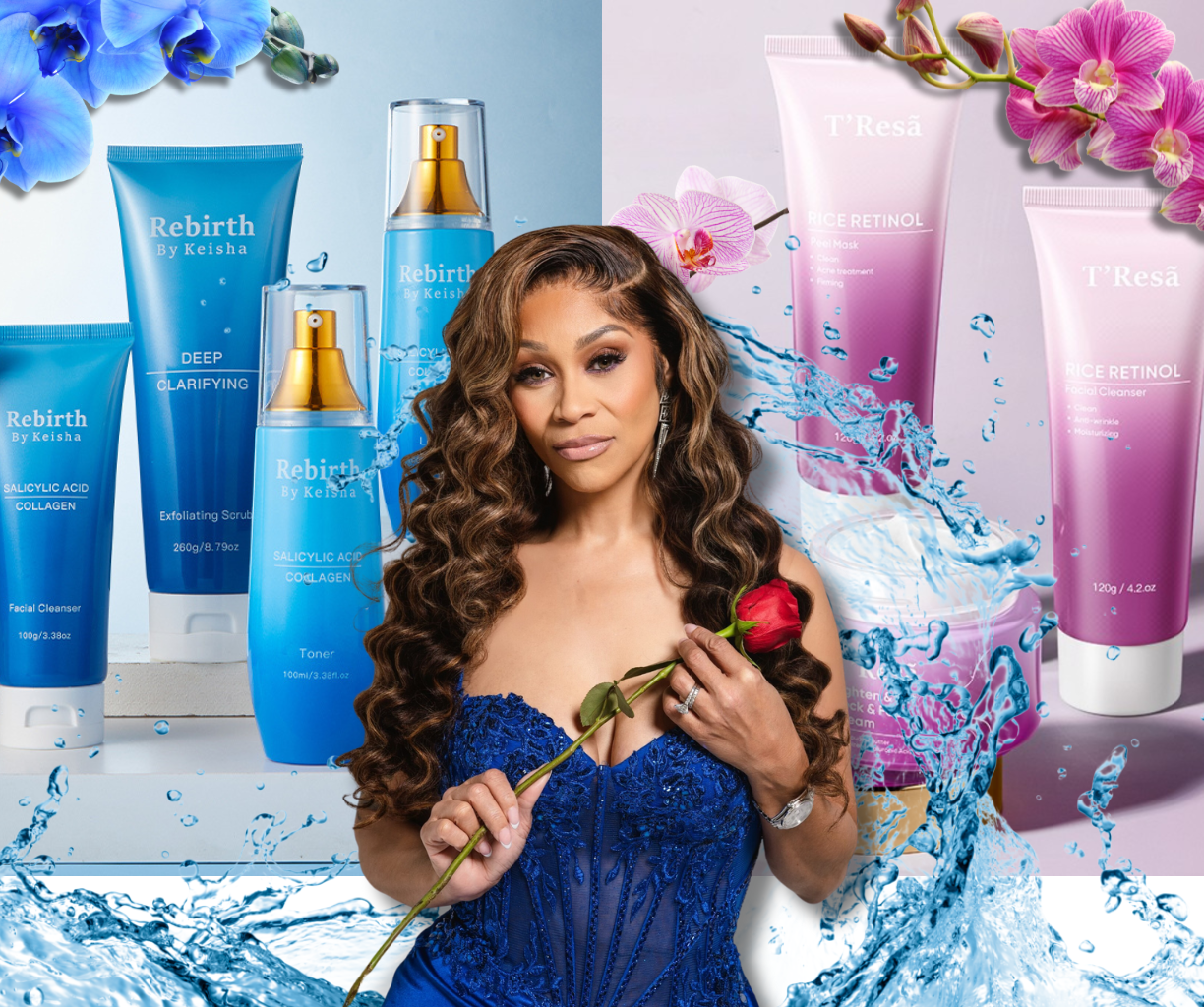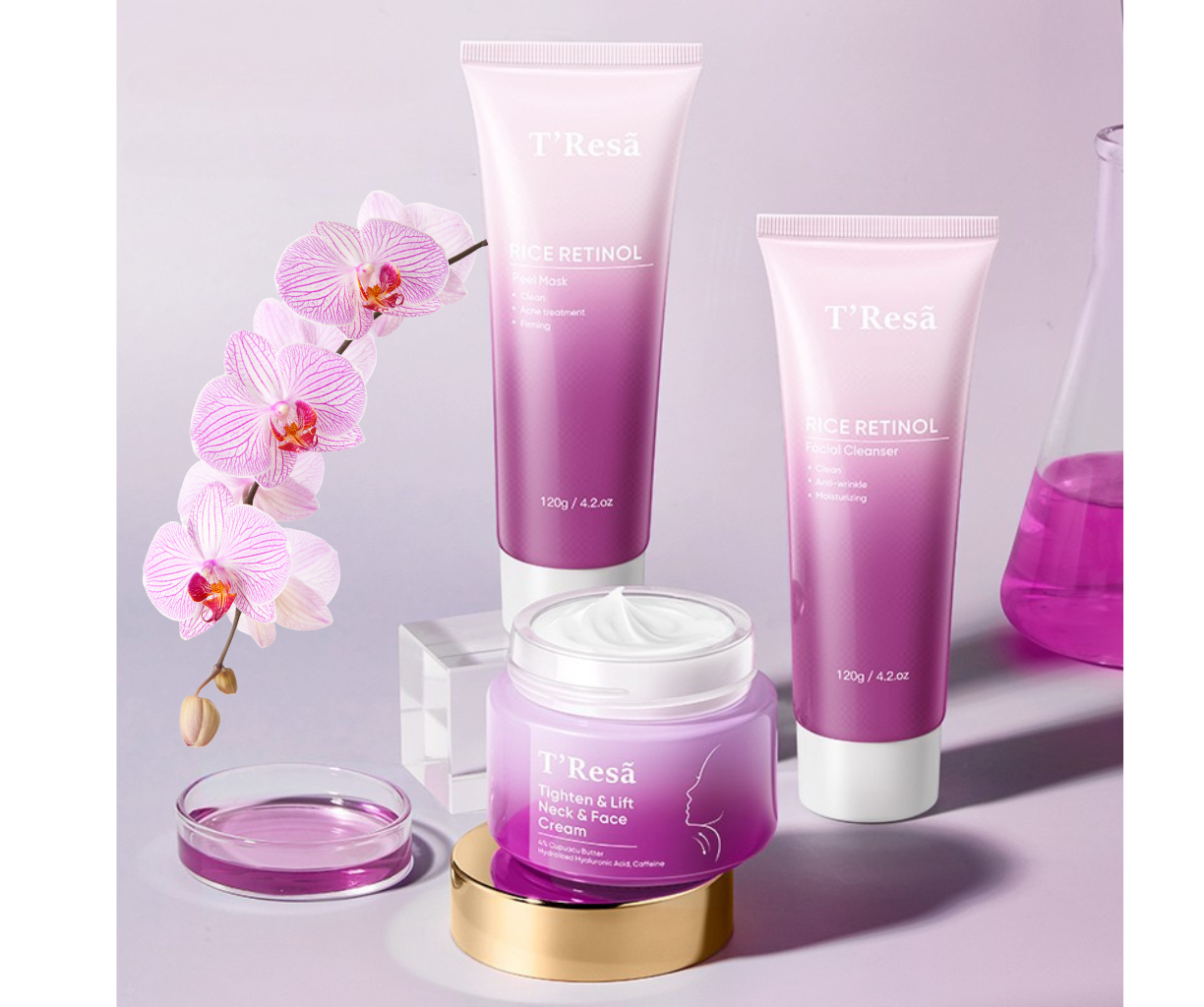Fade & Glow Bundle
EXFOLIATING SCRUB
An exfoliating scrub is a skincare product designed to remove dead skin cells from the surface of your skin, leaving it smoother, softer, and more radiant. These scrubs typically contain granular particles (like sugar, salt, crushed shells, or microbeads) suspended in a cream or gel base, which help manually slough off dead skin when massaged onto the skin.
Benefits:
- Improves skin texture and radiance.
- Unclogs pores to prevent acne and blackheads.
- Enhances the effectiveness of serums and moisturizers.
- Encourages cell turnover.
How to Use:
- Wet your skin with lukewarm water.
- Apply a small amount of scrub and gently massage in circular motions for 30–60 seconds.
- Rinse thoroughly and pat dry.
- Follow with moisturizer or other treatments.
- Use 1–3 times per week (depending on your skin type).
Tips:
- Avoid scrubs with overly abrasive particles (e.g., sharp crushed shells) that can cause microtears.
- Don’t over-exfoliate — it can damage your skin barrier.
- Use gentle pressure; let the scrub do the work.
TONER
A skin toner is a water-based skincare product applied to the face after cleansing and before moisturizing. It is designed to remove any remaining impurities, balance the skin’s pH, and prepare it for better absorption of serums and moisturizers.
How to Use:
· After washing your face with a cleanser
· Before applying serums or moisturizers
It can be used with:
· A cotton pad or ball
· Sprayed directly on the face (in mist form)
· Patted on with clean hands
Benefits:
1. Restores pH Balance: Cleansing can disrupt the natural pH of the skin; toner helps bring it back to its normal level.
2. Removes Residue: Clears leftover makeup, oil, or cleanser residue that wasn't removed during washing.
3. Hydration: Many toners contain humectants (like glycerin or hyaluronic acid) that help keep the skin hydrated.
4. Minimizes Appearance of Pores: Helps tighten skin and refine pores, giving a smoother appearance.
5. Preps Skin for Other Products: Enhances absorption of serums, treatments, and moisturizers.
6. Soothes Skin: Some toners have calming ingredients like aloe vera or chamomile for irritated or sensitive skin.
7. Oil Control: Especially beneficial for oily or acne-prone skin types, as it can help reduce excess sebum.
RETINOL CREAM
Retinol cream is a type of skincare product that contains retinol, a form of Vitamin A. It's widely used for its anti-aging and skin-renewing properties. Retinol helps to speed up skin cell turnover, making it effective in treating wrinkles, fine lines, and age spots. It can also be used to treat acne by preventing pores from becoming clogged.
Retinol cream offers several benefits for your skin, making it one of the most popular and effective skincare ingredients.
Benefits:
1. Anti-Aging Effects
· Reduces Fine Lines & Wrinkles: Retinol stimulates collagen production, which helps to firm the skin and smooth out fine lines and wrinkles. Over time, it can make the skin appear more youthful and plumper.
· Improves Skin Elasticity: By increasing collagen and elastin production, retinol helps the skin maintain its firmness and elasticity.
2. Acne Treatment
· Prevents Clogged Pores: Retinol speeds up skin cell turnover, which helps prevent pores from becoming clogged with dead skin cells, a common cause of acne.
· Reduces Acne Breakouts: Regular use can lead to fewer breakouts by keeping the pores clear and reducing inflammation.
3. Fades Hyperpigmentation
· Reduces Dark Spots & Sun Damage: Retinol can fade dark spots, sun spots, and other forms of hyperpigmentation by promoting the shedding of pigmented skin cells and encouraging the production of new, healthy skin.
· Evens Skin Tone: Over time, it helps to even out skin tone and improve the overall texture, making your complexion look more radiant.
4. Improves Skin Texture
· Smooths Skin: Retinol's exfoliating effects help to remove dead skin cells, which results in smoother, softer skin.
· Helps with Uneven Skin Texture: Regular use can make the skin feel and appear more uniform in texture, addressing rough patches or acne scars.
5. Minimizes Pore Size
· Tightens & Refines Pores: By encouraging faster skin turnover and preventing clogged pores, retinol can make pores look smaller and more refined.
6. Prevents Future Skin Damage
· Promotes Skin Renewal: Retinol encourages the regeneration of new skin cells, which helps the skin stay fresh, healthy, and better able to defend against environmental stressors.
7. Improves Skin Tone & Brightness
· Reduces Redness & Inflammation: Retinol can help reduce redness or blotchiness in the skin, leaving the skin looking more even and bright.
How to Use:
· Start Slow: If you're new to retinol, begin with a lower concentration and use it only a couple of times a week to build tolerance. Gradually increase the frequency as your skin gets used to it.
· Nighttime Use: Retinol can make your skin more sensitive to the sun, so it’s best used at night, followed by sunscreen during the day.
· Moisturize: Retinol can be drying, so be sure to follow up with a good moisturizer to maintain hydration.
Things to Keep in Mind:
· Sensitivity: Some people may experience redness, peeling, or irritation when first using retinol, especially if they have sensitive skin.
· Sun Protection: Always apply sunscreen during the day when using retinol, as your skin will be more vulnerable to sun damage.
Retinol is a powerful ingredient, but consistency and gradual introduction into your routine are key to maximizing its benefits. Let me know if you'd like more specific recommendations based on your skin type or needs.




